Theurgy and the Soul For my parents, Norman J. Shaw and Rita G. Shaw gregory shaw Theurgy and the The Soul Neoplatonism of Iamblichus second edition John MilbankForeword & Aaron Riches Second Edition, Angelico Press/Sophia Perennis, 2014 Gregory Shaw 2014 Foreword John Milbank & Aaron Riches, 2014 Revised edition of the work originally published by The Pennsylvania State University Press 1995 All rights reserved No part of this book may be reproduced or transmitted, in any form or by any means, without permission. For information, address: Angelico Press 4709 Briar Knoll Dr. Kettering, OH 45429 angelicopress.com Ppr. 1493. 1493.
gregory shaw Theurgy and the The Soul Neoplatonism of Iamblichus second edition John MilbankForeword & Aaron Riches Second Edition, Angelico Press/Sophia Perennis, 2014 Gregory Shaw 2014 Foreword John Milbank & Aaron Riches, 2014 Revised edition of the work originally published by The Pennsylvania State University Press 1995 All rights reserved No part of this book may be reproduced or transmitted, in any form or by any means, without permission. For information, address: Angelico Press 4709 Briar Knoll Dr. Kettering, OH 45429 angelicopress.com Ppr. 1493. 1493.
Cover Design: Michael Schrauzer contents Acknowledgments for the First Edition i Abbreviations iii Foreword: Neoplatonic Theurgy and Christian Incarnation v
Preface to the Second Edition xix
Introduction: To Preserve the Cosmos 1
IMatter and Embodiment Embodiment in the Platonic Tradition 23 Matter as Cosmic Instrument 31 Matter as Obstacle to the Embodied Soul 41 Theurgy as Demiurgy 50
IIThe Nature of the Embodied Soul The Descent of the Soul 67 Soul as Mediator 78 The Constraints of Embodiment 90 The Freedom of Immortal Bodies 98 The Paradox of Embodiment 110 Descending to Apotheosis 121 Eros and the One of the Soul 134
IIIThe Liturgy of the Cosmos Cult and Cosmos 147 Ritual and the Human Hierarchy 162 Ritual as Cosmogony 173 Material
Sunthemata 183 Intermediate
SunthemataSeeing and Hearing the Gods 192 Intermediate
SunthemataNaming the Gods 201 Noetic
SunthemataMathematics and the Soul 212 Noetic
SunthemataThe Theurgy of Numbers 223 The
Sunthema of the Sun 242
IVToward a Universal Platonism The Platonizing of Popular Religion 259 Conclusion 266 Select Bibliography 273 Index 293 Acknowledgments for the First Edition his book began as a doctoral dissertation under the direc tion of Birger Pearson of the University of California, Santa TBarbara. I am grateful for his unfailing support of my work and the high standards of his scholarship. I owe thanks to other professors at the University of California, Santa Barbara. Richard Hecht introduced me to Iamblichus, asked the right questions, and infected me with his passion for the religions of Late Antiquity. Hal Drake was always generous with his time, and his pointed sugges tions, encouragement, and humor were a great help. Ruth Majercik taught me a great deal about theurgy and led me, by example, into the study of later Platonism.
I owe many thanks to Peter Brown of Princeton University, whose interest in this manuscript has been a source of encouragement from the beginning. He read several versions of the work and offered strategies that brought clarity and coherence to the entire manu script. This publication is due primarily to his generous advice. Equal thanks are owed to John Dillon of Trinity College, Dublin, who also read several versions of the manuscript; he tightened my argument and corrected numerous errors, including my translations of Iamblichuss Greek. Jay Bregman of the University of Maine, Orono, initially urged me to publish the manuscript and later read the final version, making several helpful suggestions. The time these scholars have given to this work will always be appreciated.
I am also grateful to two French scholars of Neoplatonism, H.D. Saffrey and the late Jean Trouillard, who invited me into their homes to share their ideas, books, and conversation in the winter of 198283. Trouillards publications had previously allowed me to glimpse the beauty of Platonic theurgy, and the intelligence and kindness he conveyed personally confirmed for me the depth and wisdom of the tradition that he embodied. My thanks also to Erma i Theurgy and the Soul Pounds of Tempe, Arizona, and Robert Johnson of Encinitas, Cali fornia, who earlier helped me recognize such depth. Two Faculty Summer Grants from Stonehill College aided my research and provided time for revisions of the manuscript, which Thomas Hallinan graciously photocopied on several occasions. The constant support of my colleagues in the Department of Religious Studies at Stonehill has also been a great help.
The late Helen Nes bitt was kind enough to give the first four chapters of the manu script hours of careful reading, which produced clearer and more economic prose. Working with the editorial staff of Penn State Press has been a pleasure. Peter Potter has always been prompt, clear, and professional, and he made several suggestions that improved the manuscript. Betty Waterhouse did a meticulous job of copyediting, correcting numerous bibliographical errors, tightening my prose, and asking for needed clarifications. My thanks also to Cherene Holland and others at Penn State Press who have helped bring the manuscript to publication. An earlier version of this manuscript has the unique distinction of having been bottled by Cameron Shaw, an artist, whose Untitled Table with Thesis on Theurgy has been dis played in galleries in New York, Boston, and Los Angeles.
Finally, I thank my wife, Lisa, for her lighthearted patience and understanding through all phases of bringing this book to publica tion. She has read and listened to all the revisions and has made many suggestions to improve my writing, but, more importantly, she allows me to see a world detached from my academic interests. My thanks as well to Ariel and Adrian, who reminded me to play. ii Abbr A e b v breviations iations ANRWAufstieg und Niedergang der Rmischen WeltCAGCommentaria in Aristotelem GraecaCHCorpus HermeticumCMAGCatalogue des Manuscrits Alchimiques GrecsCOChaldean OraclesDe Abst.De Abstinentia (Porphyry) DAIn De Anima (Simplicius [?]) DCMSDe Communi Mathematica Scientia Liber (Iamblichus) DMDe Mysteriis (Iamblichus) Dub. et Sol.Dubitationes et Solutiones de Primis Principiis inPlatonis Parmenidem (Damascius) Enn.Enneads (Plotinus) EntretiensEntretiens sur lAntiquit Classique, vol. (A.-J. (A.-J.
Festugire) NHCNag Hammadi CodicesStob.Stobaeus: Anthologium, 4 vols. (ed. C. Wachsmuth and O.Hense) TATheologoumena Arithmeticae (Iamblichus [?]) Th. Pl.Proclus: Theologie Platonicienne, 5 vols. H.D. H.D.
Saffrey and L.G. Westerink) VPDe Vita Pythagorica Liber (Iamblichus) iii Theurgy and the Soul iv Foreword Neoplatonic Theurgy and Christian Incarnation uropean culture and the Christian religion from which it is inseparable are constituted in, and founded upon, a double Einheritance: the Law of the Old Covenant and the wisdom of Greek thought. In modernity this double inheritance has tended to be tidily parsed, as if the former concerned the substance of cultic practice and salvation, concrete and material, while the latter con cerned the pure disembodied act of reason and of philosophical wisdom. And so the Hebrew basis of Christian culture and religion is thought of as meaty and incarnational, while the Hellenistic con tribution is colored by a superficial (and false) sense that Hellenism, and especially Platonic thought, rests on an unequivocal body-soul, matter-spirit dualism. This division is highly distortive. The sapiential literature of the Hebrew Bible itself proves that no such tidy division exists, since herein the Scriptures themselves already bears traces of the Helle nistic culture and thought that would later permeate Christianity.
And if on the one hand we are seeing that Christianity inherited a certain Hellenism already within its Scriptures, on the other hand we are discovering more and more that, inasmuch as the philosophy of the Greeks was itself fully religiousconcerned above all not with philosophizing in a modern sense, but rather with the culti vation of spiritual practices that would realize the communion of the soul with the gods through concrete practicesthe liturgical practice of Christianity, too, inherits significantly from the cultic practices of Greek philosophy. In this regard the recovery of the thought and influence of the Syrian Neoplatonist Iamblichus (c.245c.325) may prove, in time, to stand at the very heart of a new self-understanding of Western culture and religionone less domi v
Next page
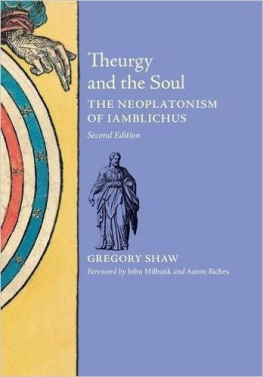
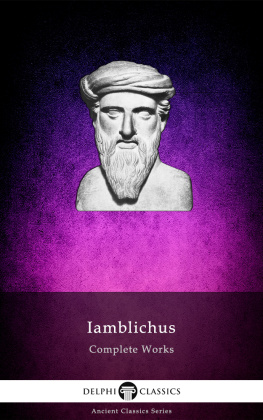

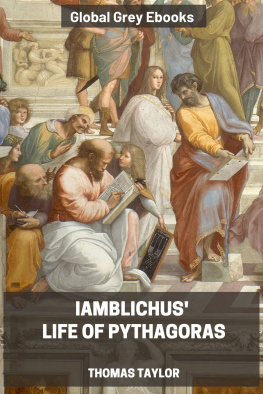
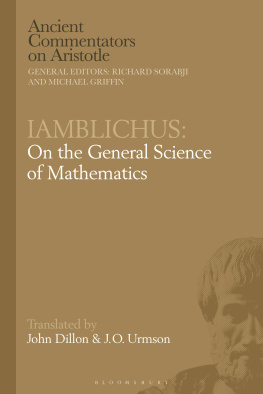
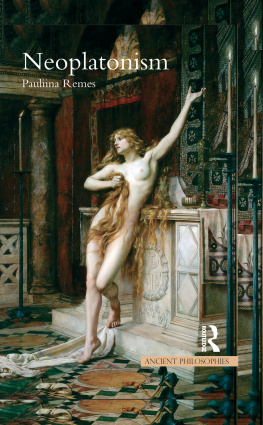
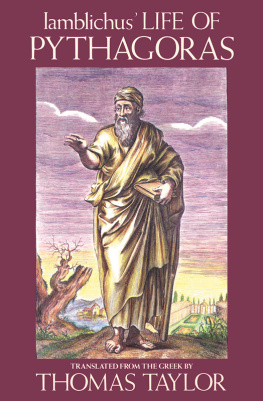
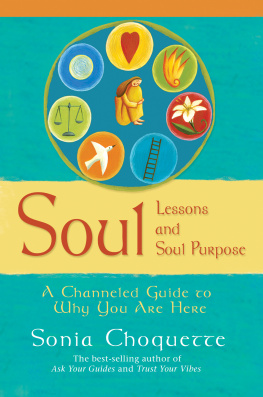
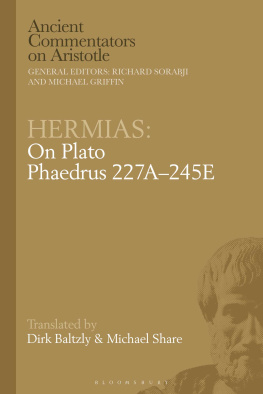
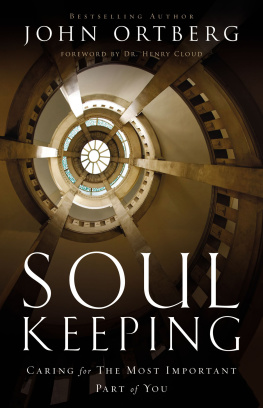
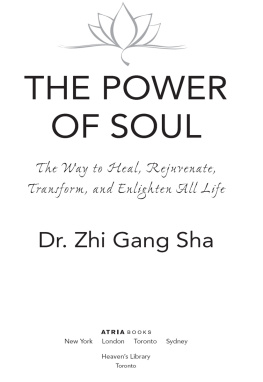
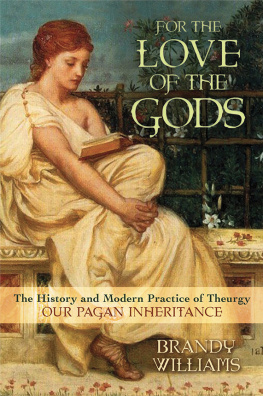
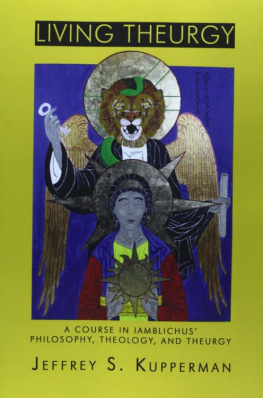
 gregory shaw Theurgy and the The Soul Neoplatonism of Iamblichus second edition John MilbankForeword & Aaron Riches Second Edition, Angelico Press/Sophia Perennis, 2014 Gregory Shaw 2014 Foreword John Milbank & Aaron Riches, 2014 Revised edition of the work originally published by The Pennsylvania State University Press 1995 All rights reserved No part of this book may be reproduced or transmitted, in any form or by any means, without permission. For information, address: Angelico Press 4709 Briar Knoll Dr. Kettering, OH 45429 angelicopress.com Ppr. 1493. 1493.
gregory shaw Theurgy and the The Soul Neoplatonism of Iamblichus second edition John MilbankForeword & Aaron Riches Second Edition, Angelico Press/Sophia Perennis, 2014 Gregory Shaw 2014 Foreword John Milbank & Aaron Riches, 2014 Revised edition of the work originally published by The Pennsylvania State University Press 1995 All rights reserved No part of this book may be reproduced or transmitted, in any form or by any means, without permission. For information, address: Angelico Press 4709 Briar Knoll Dr. Kettering, OH 45429 angelicopress.com Ppr. 1493. 1493.